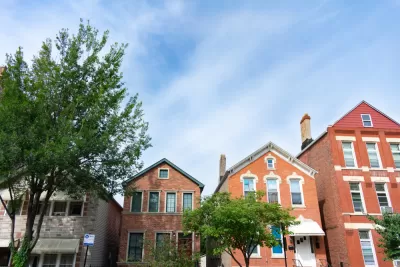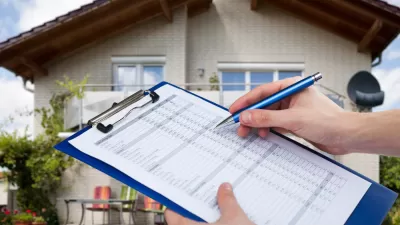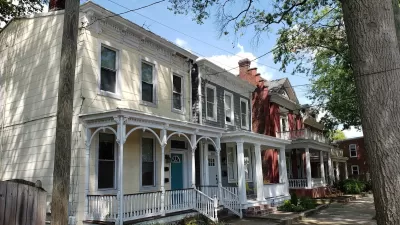A new initiative seeks to support innovations that reduce inequalities in home valuations between Black and white neighborhoods.

Following the 2018 publication of The devaluation of assets in Black neighborhoods, “a report exposing significant inequities that are inherent in housing markets across the U.S.,” a new initiative from the Brookings Institution and Ashoka seeks to “to foster structural innovations that can address systemic racism in the housing market and enable homeowners in Black-majority neighborhoods to realize the value and appreciation of their assets.”
Andre M. Perry and Stuart Yasgur describe the project, which “invited innovators from across the country to submit inspiring ideas for redesigning a more equitable housing market.” According to the authors, “The federal government’s regulation and enforcement functions in housing are critical in closing the valuation gap, but they are not sufficient by themselves. We need an agenda for future research and innovations that scale-up alternatives to traditional appraisals, create new unbiased valuation methods, and diversify the appraisal workforce—96.5% of whom are white.”
“The innovators in the Valuing Homes in Black Communities challenge are working on projects in these areas now—projects we can scale up to lawmakers in Washington. Just as we once built a market on exclusivity, today, we can construct an inclusive one.” The article lists the ten innovators who will receive funding through the program, concluding: “We find ourselves in a rare moment in which researchers, government, corporations, and private citizens can dismantle the drags of racism from housing markets and build an architecture of equality.”
FULL STORY: Redesigning the housing market to build an architecture of equality

Planetizen Federal Action Tracker
A weekly monitor of how Trump’s orders and actions are impacting planners and planning in America.

Restaurant Patios Were a Pandemic Win — Why Were They so Hard to Keep?
Social distancing requirements and changes in travel patterns prompted cities to pilot new uses for street and sidewalk space. Then it got complicated.

Map: Where Senate Republicans Want to Sell Your Public Lands
For public land advocates, the Senate Republicans’ proposal to sell millions of acres of public land in the West is “the biggest fight of their careers.”

Maui's Vacation Rental Debate Turns Ugly
Verbal attacks, misinformation campaigns and fistfights plague a high-stakes debate to convert thousands of vacation rentals into long-term housing.

San Francisco Suspends Traffic Calming Amidst Record Deaths
Citing “a challenging fiscal landscape,” the city will cease the program on the heels of 42 traffic deaths, including 24 pedestrians.

California Homeless Arrests, Citations Spike After Ruling
An investigation reveals that anti-homeless actions increased up to 500% after Grants Pass v. Johnson — even in cities claiming no policy change.
Urban Design for Planners 1: Software Tools
This six-course series explores essential urban design concepts using open source software and equips planners with the tools they need to participate fully in the urban design process.
Planning for Universal Design
Learn the tools for implementing Universal Design in planning regulations.
Heyer Gruel & Associates PA
JM Goldson LLC
Custer County Colorado
City of Camden Redevelopment Agency
City of Astoria
Transportation Research & Education Center (TREC) at Portland State University
Camden Redevelopment Agency
City of Claremont
Municipality of Princeton (NJ)





























